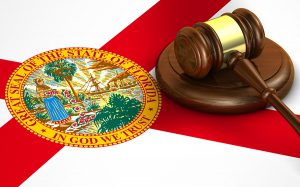Why Is Getting Rid Of PIP A Bad Thing?
 Michael Babboni
Insurance Coverage
Earlier in the year, in the month of May, another attempt by Florida legislature to repeal and replace PIP failed. PIP stands for the Florida Personal Injury Protection Law, and for drivers who live and work in this state, it’s a familiar component of financial protection in the event that anything goes wrong.
Michael Babboni
Insurance Coverage
Earlier in the year, in the month of May, another attempt by Florida legislature to repeal and replace PIP failed. PIP stands for the Florida Personal Injury Protection Law, and for drivers who live and work in this state, it’s a familiar component of financial protection in the event that anything goes wrong.Ultimately, the Senate did not vote to repeal and then replace this law, and that means that for drivers in Florida, at least for the remainder of 2017 and 2018, it’s business as usual in terms of what they can expect for the financial process in an accident. Most people will see this as a good thing, simply because it means that no one has to learn anything new, or adjust to some unfamiliar legal implementation. But it does beg the question, why did some people in the government want to strike down the current PIP regulations and replace it something else? How would this have affected you and your driving?
The Current Situation
Right now for drivers in Florida, the PIP is a pretty standard and simple form of financial protection. Of course, every driver knows that you can’t get behind the wheel in Florida without some kind of insurance coverage. To attempt to drive without coverage is actually illegal in the eyes of the law, because it means that should you get into an accident, you are “on the hook” to pay for all repair and medical expenses out of your own pocket, rather than having an insurance company finance whatever is required.
However, PIP is a special form of insurance coverage that operates below a specific threshold of expense. For Florida drivers, should an accident occur where the expenses total less than $10,000, the PIP law steps in and quickly, automatically provides for insurance companies to pay the necessary expenses, without requiring a case in court in order to determine fault and assign a final amount of compensation. For people in need of immediate medical attention, or a rapid repair on a car in order to be able to continue to work, this expedient form of financial compensation is a real blessing. It also keeps the court empty of smaller claims cases.
So if that’s the way it works now, why was the Senate debating whether or not to repeal this law? And what was their replacement for it?
The Perception Of Abuse
One reason the Senate believed the replacement of the PIP was necessary stems from abuse. There was a belief that because the PIP made payments under $10,000 fast and efficient, the temptation to file fraudulent claims for these smaller amounts was too great. Some also argued that because of the added sense of “security” that some drivers had from knowing they had such easy coverage, they drove more carelessly, and got into more accidents, thus driving up the premiums for insurance companies and people.
To counter this, the replacement for PIP was supposed to be the “MBI” or Mandatory Bodily Injury law. Under this system, there would have been no more easy or expedient payments below a certain amount of damage. People involved in accidents under an MBI policy would have to be directly responsible for overseeing their own payments and making sure they had adequate coverage.
This wouldn’t have been much of an issue for wealthier drivers that may have had access to their financial or legal staff to handle these activities. But for the average Florida resident, this meant more time, more complexity, and more difficulty were involved in getting the money required to pay for repairs and recovery, even if it wasn’t that driver’s fault.
While it’s an interesting argument to make that ultimately making the penalties for injury and repair payments harsher would lead to fewer accidents because people would be “more scared and thus more careful,” it’s not clear that this would statistically play out as a measurable drop in accidents. Confidence in having insurance is usually not a factor in drunk driving or distracted driving accidents.
The more tangible result of a PIP law repealed and replaced with an MBI law is that things would slow down. Right now in accidents of $10,000 or less, the financing required is quickly dispensed, and there’s no need for a court, or a lengthy discussion with an insurance company to secure the money. However, with an MBI policy, every single car accident, regardless of how small, would involve negotiating with what can often be a reluctant insurance company, and convincing them to release the money required.
You’re Still Protected
For now, at least, and for the remainder of the next year or two, Florida drivers have nothing to fear. Quick payments from PIP policies are still in place, and for those times when you need more help, an experienced St. Petersburg car accident attorney is always nearby to help.
